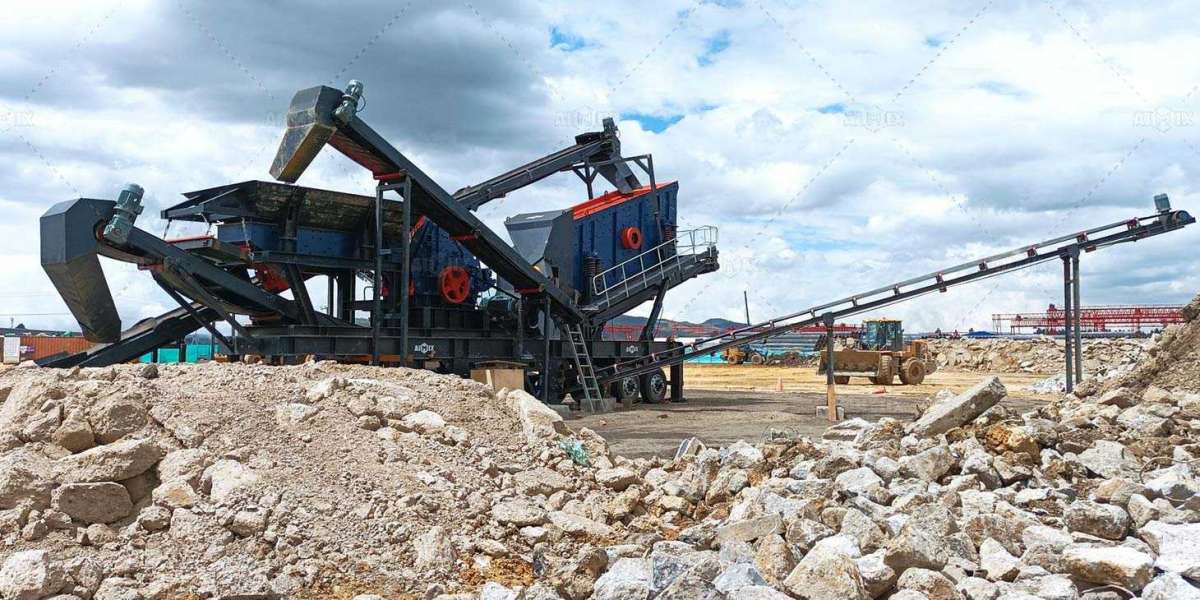In the expanding world of construction and demolition recycling, the concrete crusher has emerged as a must-have machine for contractors and aggregate producers alike. But the marketplace isn’t one-size-fits-all. Instead, it’s segmented by equipment size, mobility, and throughput capacity—factors that dramatically affect pricing. Whether a buyer is looking to invest in a full-scale stationary plant or seeking a compact mini model for limited-space jobsites, understanding the economic dynamics of each type is key to making a profitable choice. Each model category—mobile, stationary, and mini—offers distinct advantages tied closely to application scenarios. However, these differences come with trade-offs in price, maintenance demands, mobility, and output efficiency. Below is a detailed concrete crusher machine price and what potential buyers should prioritize based on their operational goals.
Mobile Concrete Crushers: Power Meets Portability
Flexible Deployment at a Premium Cost
Mobile crushers are designed for projects that require frequent relocation. Built with chassis-mounted configurations and self-contained diesel or electric engines, these units are capable of crushing concrete directly at the demolition site. This eliminates transport fees for raw material and reduces downtime. However, this convenience comes at a price. The average mobile concrete crusher in the 80–250 tph range typically costs between $150,000 and $350,000. Larger models with hybrid power systems, advanced automation, and multiple screening decks can reach beyond $500,000. While mobile crushers excel in urban demolition or road-building projects, they also incur higher fuel costs and wear-and-tear due to constant relocation. For operations requiring extreme mobility and time-sensitive completion, the investment is usually justified.

Who Should Consider Mobile Units?
Mobile crushers are ideal for contractors handling scattered or temporary projects. Rental companies also prefer mobile models due to their transportability and versatile use across regions. In regions with strict construction timelines, the speed of deployment the mobile crusher offer becomes a valuable asset.
Stationary Concrete Crushers: Efficiency in Bulk
High Output, Lower Unit Cost
Stationary crushers are the heavyweights of the concrete recycling sector. Mounted permanently at a fixed plant, they are engineered to process high volumes continuously with minimal operator oversight. Their design allows for integration with conveyor belts, feeders, and screening systems, transforming them into a fully automated crushing line. Due to their scale, stationary units tend to be more economical per ton processed. Entry-level models start around $100,000, while large-capacity systems with multiple-stage crushing setups can exceed $800,000. The primary drawback is immobility. Installation takes time and requires a solid foundation. However, the low operating cost per ton and extended service life often make them the top choice for permanent facilities and long-term aggregate production contracts.
When Stationary Makes More Sense
If the material source is stable—like an old concrete bridge or large industrial facility—then stationary crushers are the logical choice. Their capability to run uninterrupted for months means faster returns on investment for high-volume users. Producers supplying precast plants or cement manufacturing benefit significantly from this format.
Mini Concrete Crushers: Compact and Cost-Conscious
Affordable Entry Point for Niche Projects
Mini crushers represent the smallest category of concrete crushers. Often mounted on tracks or wheels, these compact units are ideal for indoor demolition, tight alleyway access, or residential zone projects. They’re also commonly used in small-scale recycling operations or as an add-on to an existing plant. Prices for mini models generally range from $25,000 to $90,000, depending on capacity, feeding mechanism, and optional hydraulic features. Though limited in throughput (typically under 50 tph), they are favored for low-investment startups and businesses testing the waters in construction waste recycling. What they lack in volume, they make up for in agility. Some models can be operated by a single person and towed by a pickup truck. Their small footprint enables them to be deployed in locations that would otherwise be inaccessible to larger units.
Ideal Use Cases for Mini Crushers
Mini crushers shine in urban demolition, landscaping, and small contractor jobs. They are often the first step for businesses wanting to enter the recycling market with limited capital exposure. Municipalities also use them for infrastructure maintenance, sidewalk removal, and public works.

Final Considerations
Selecting the right type of concrete crusher ultimately hinges on balancing project scale, mobility needs, and capital expenditure. Mobile crushers offer flexibility with a higher upfront cost. Stationary units deliver throughput efficiency and cost-effectiveness for long-term production. Mini crushers provide a budget-friendly solution for specialized or low-volume tasks. For buyers, understanding the nuances of each type ensures investments align with operational demands—not just in theory, but in dollars and cents.







